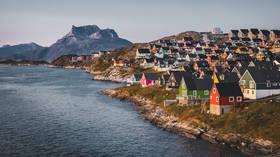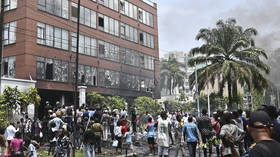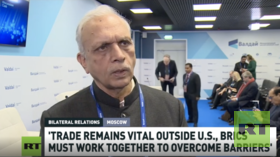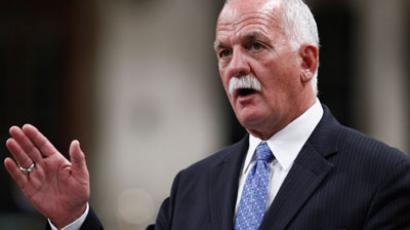Indigenous Occupy: Canadian grassroots native movement on rise
An indigenous movement known as ‘Idle No More’ is gaining momentum in Canada. The First Nations people have promised to bring the country's economy 'down to its knees' if aboriginals’ voices remain unheard.
Having begun with four members in November, Idle No More has now become reminiscent of other grassroots movements like Occupy Wall Street.Canadian Prime Minster Stephen Harper has agreed to meet with native chiefs on Friday to discuss disagreements over treaty rights and other grievances. Despite him promising to pay more attention to their demands, the meeting did not resolve any real issues.Before the meeting, hundreds of indigenous activists protested in front of the Canada’s parliament, demonstrating their frustration, but also highlighting a deep divide within the country's First Nations on how to push Ottawa to heed their demands.Mass demonstrations have been sparked by Bill C-45, which was passed by the Canadian government in December. The legislation amends rules about the community's land and protesters say it undermines century-old treaties by altering the approval process for leasing aboriginal lands to outsiders and changing environmental oversight in favor of natural resource extraction. “Bill C-45 is not just about a budget, it is a direct attack on First Nations lands and on the bodies of water we all share from across this country,” Idle No More said in a statement on its website.
“Canada is becoming essentially the world’s No.1 corporate colony,” claimed independent researcher and writer Andrew Gavin Marshall. “Our prime minister has negotiated or is negotiating eight free trade agreements – this is opening up Canada to unhindered corporate plundering of the environment and resources. Indigenous peoples are at the front lines of that because their communities are hit first and they are hit hardest. So they may be facing the final stages of the 500-years genocide.”In an interview with RT, Marshall said the Idle No More movement puts a spotlight on a broad range of problems within Canada. The movement is a resurgence of indigenous resistance against colonialism and oppression, he explained. Apart from that, it addresses human issues, the environment, the economy and society in general.“In Canada we have essentially what amounts to apartheid system in how we treat the indigenous population. In their communities they have less access to water, food insecurity.”Another serious issue is the situation that indigenous women are facing. “We have huge numbers of murdered or missing aboriginal women. The police don’t care. It’s unaccounted for.”As the movement is gaining moment it is spreading outside Canada with hundreds of protests held across the world, Marshall says.“It’s been spreading globally because indigenous issues are human issues and are relevant everywhere around the world. It can spread in the same way the Occupy spread – largely through social media.”Canadian society is waking up to the fact that the world has changed, Marshall argues. “You have a youth movement here in Quebec and now an indigenous movement across the country and spreading.”“What’s happening is part of the global phenomenon of change. This has no national boundaries, this is about people waking up to the power systems that exist and demanding and fighting for change,” he told RT.“What aboriginal people in Canada are teaching us is that to protect the environment we have to address empire and that’s the reality that people everywhere are facing. As well as economic injustice – these are all related issues – we can’t deal with them separately. We have to deal with them collectively and we have to act on them collectively.”














